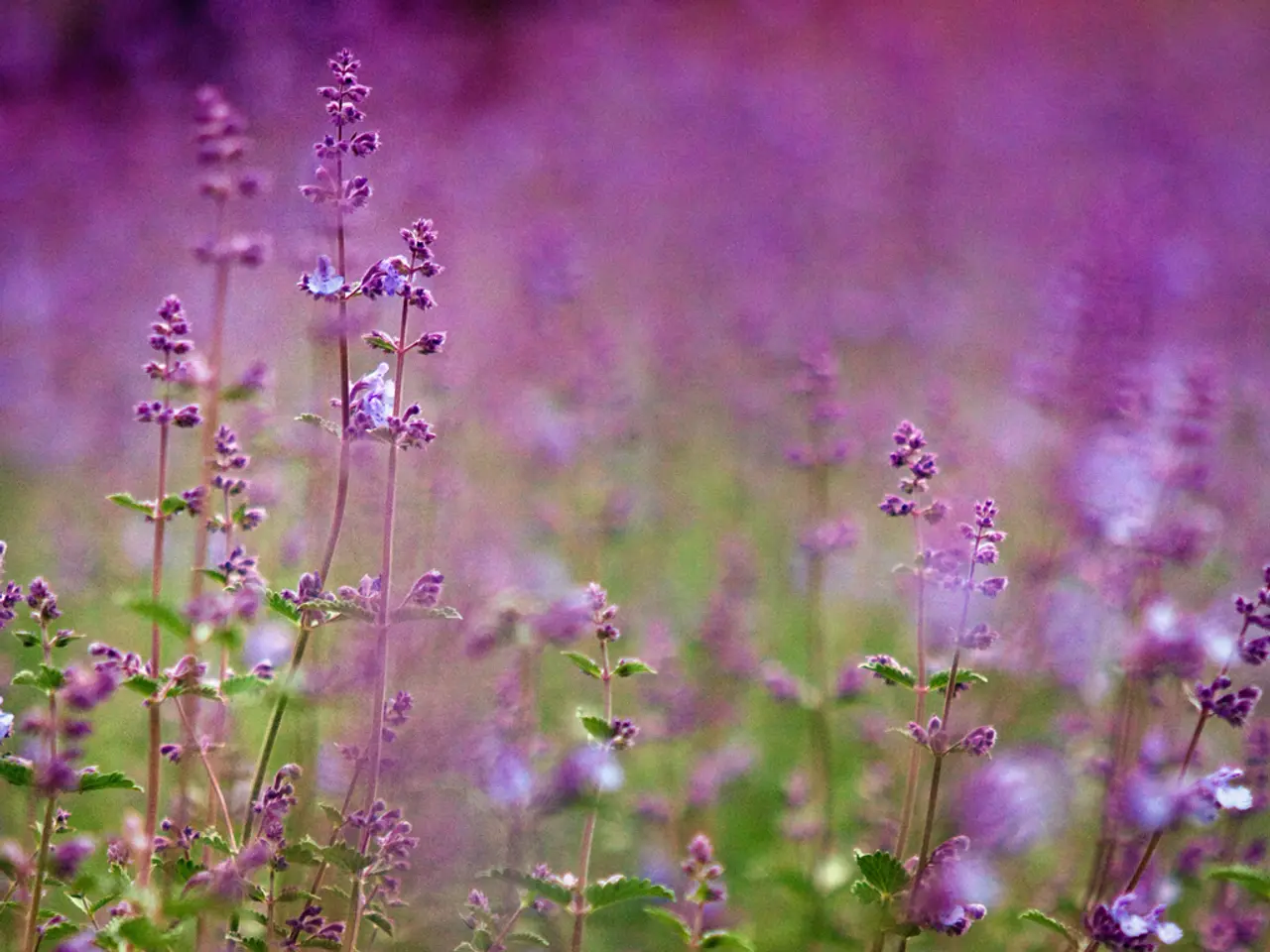Anxiety Relief through Herbs: Effective or Myth? Discovering 9 Peaceful Herbal Remedies
In the realm of natural remedies, a selection of common herbs has been scientifically proven to offer relief from anxiety symptoms. These include ashwagandha, chamomile, valerian, and passionflower.
Ashwagandha, an adaptogen herb, is renowned for its anxiolytic (anxiety-reducing) effects. By modulating the hypothalamic–pituitary–adrenal (HPA) axis and reducing stress hormones like cortisol, ashwagandha can help balance neurotransmitters such as serotonin and norepinephrine, thereby improving anxiety symptoms. Clinical trials have shown significant reductions in anxiety and stress symptoms with ashwagandha supplementation, often improving overall mood and resilience to stress [1].
Chamomile, a mild sedative and anxiolytic herb, is traditionally used as a calming tea before sleep. Its efficacy in reducing generalized anxiety symptoms and promoting relaxation is supported by scientific studies, primarily due to apigenin, a flavonoid that binds to benzodiazepine receptors in the brain. Chamomile has also been studied in PTSD contexts due to its calming properties [3].
Valerian root, native to Europe and Asia, has a sedative effect and is commonly used for anxiety and insomnia. It works by increasing GABA (gamma-aminobutyric acid) availability in the brain, a neurotransmitter that promotes relaxation and reduces anxiety. Valerian's effect on anxiety is supported by both historical use and clinical studies, often recommended as a natural alternative for anxiety and stress relief [3].
Passionflower, native to South America, exhibits anxiolytic effects mainly through GABA modulation, similar to valerian. Clinical trials indicate that passionflower may reduce anxiety symptoms comparably to low doses of conventional anxiolytics but with fewer side effects. It is often used for generalized anxiety disorder and related nervous tension [3].
However, it is crucial to note that these herbs can interact with medications that affect neurotransmitters or central nervous system (CNS) depressants. For instance, ashwagandha may potentiate sedatives and thyroid medications, while chamomile may interact with anticoagulants due to its mild blood-thinning properties and may increase sedation when combined with CNS depressants. Valerian can enhance the effect of sedatives, benzodiazepines, and alcohol, increasing drowsiness and sedation, and passionflower can also potentiate sedatives [1][3].
Before combining these herbs with prescription medications, especially antidepressants, benzodiazepines, or other anxiolytics, it is essential to consult healthcare providers to avoid additive effects or adverse reactions [3].
While these herbs offer promising relief for anxiety symptoms, safety concerns remain. The Food and Drug Administration (FDA) does not monitor herbal remedies, so there are potential safety concerns for herbs that have mislabeling or contamination with heavy metals. Therefore, it is crucial to consult a doctor or pharmacist before starting herbal supplements to avoid potential health risks.
In conclusion, ashwagandha, chamomile, valerian, and passionflower have scientifically supported anxiolytic effects, acting through neurotransmitter modulation (serotonin, GABA), HPA axis regulation, and anti-inflammatory pathways. However, they may interact with medications affecting the CNS or blood clotting, warranting caution and professional guidance before combined use [1][3].
- For those dealing with anxiety symptoms, lung health-and-wellness enthusiasts might consider using herbal supplements such as ashwagandha, chamomile, valerian, and passionflower, all known for their anxiety-reducing properties.
- Ashwagandha, a herb renowned for its anxiolytic effects, modulates the hypothalamic–pituitary–adrenal (HPA) axis and reduces stress hormones like cortisol, helping balance neurotransmitters like serotonin and norepinephrine.
- Chamomile, a calming tea, possesses apigenin, a flavonoid that binds to benzodiazepine receptors in the brain, making it effective in reducing generalized anxiety symptoms and promoting relaxation.
- Valerian root, known for its sedative effect, increases GABA availability in the brain, promoting relaxation and reducing anxiety, making it a popular choice for anxiety and insomnia relief.
- Passionflower, native to South America, demonstrates anxiolytic effects through GABA modulation, particularly helpful for generalized anxiety disorder and nervous tension.
- However, careful consideration is necessary when combining these herbs with certain medications, as they can interact with neurotransmitter-affecting drugs or central nervous system depressants, such as ashwagandha potentiating sedatives and thyroid medications.
- Before incorporating herbal supplements, like crohns disease patients considering CBD for symptom relief, it is essential to consult healthcare providers to avoid unwanted additive effects or adverse reactions.
- The Food and Drug Administration (FDA) does not monitor herbal remedies, so assessment of purity and potential contamination with heavy metals is crucial to ensure safety.
- In the era of mental-health awareness, integrating herbal supplements into one's nutrition plan requires careful assessment, considering not only their benefits but also their potential risks and interactions with prescribed medications. Predictive studies and scientific analysis continue to play a vital role in understanding their effectiveness and safety for various disease conditions, including HIV and cancer.




